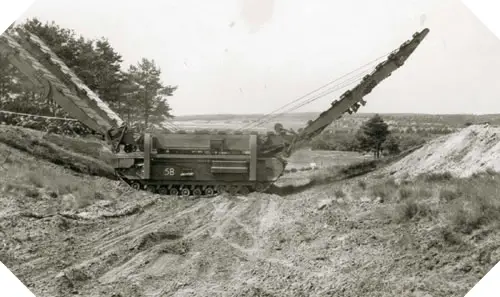Mark IV Churchill Ark tank
History, technical sheet and photo

Mark IV Churchill Ark tank history
The chassis of the British Churchill tank, as well as that of the American Sherman, serves as the basic structure for many other versions (flamethrowers, anti-mines, bridges …) used by the British forces during the Normandy landings and better known as « funnies ». These engines, devised by the English general Percy Hobart, must improve the capabilities of crossing and support fire to the benefit of Allied land forces.
One of these versions is called the KRG. Used solely by the British, its name means Armored Ramp Carrier, an armored ramp carrier.
The Churchill Ark version corresponds to the « bridge setter » model. Indeed, the tank can deploy a large gateway of type S.B.G. Over a ditch or anti-tank wall, allowing the infantry and vehicles to cross the obstacle. He can also fill the ditch himself, other vehicles or the troop crossing directly on his chassis.
Its capacities enable it to cross a ditch or a crater of bomb of ten meters of width.
Mark IV Churchill Ark tank specification
Creator/User: Britain
Denomination: Mark IV Churchill Ark
Length: 7,65 m
Width: 3,25 m
Height: 2,45 m
Weight: 39,600 kg
Maximum speed: 27 km/h
Operational range: 144 km
Caliber: 290 mm
Engine: Bedford horizontally opposed twin-six petrol engine 350 hp, 261 kW, 2,200 rpm
Consumption: 334 liters per 100 kilometers
Crew: 5 (commander, gunner, loader/radio operator, driver, co-driver/hull gunner)
Front armor: 152 mm
Rear armor: 35 mm
Specialty: Anti-tank obstacle clearance
![]() Back to the Battle of Normandy tanks
Back to the Battle of Normandy tanks
